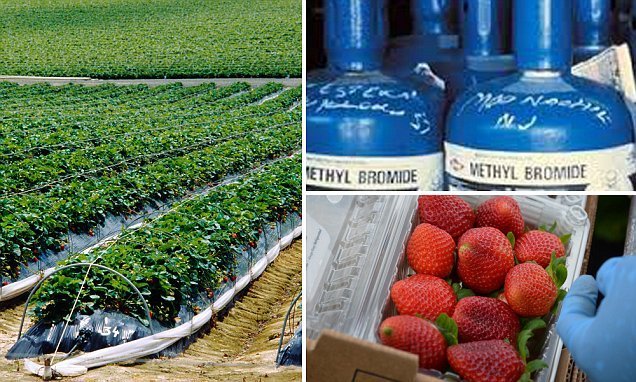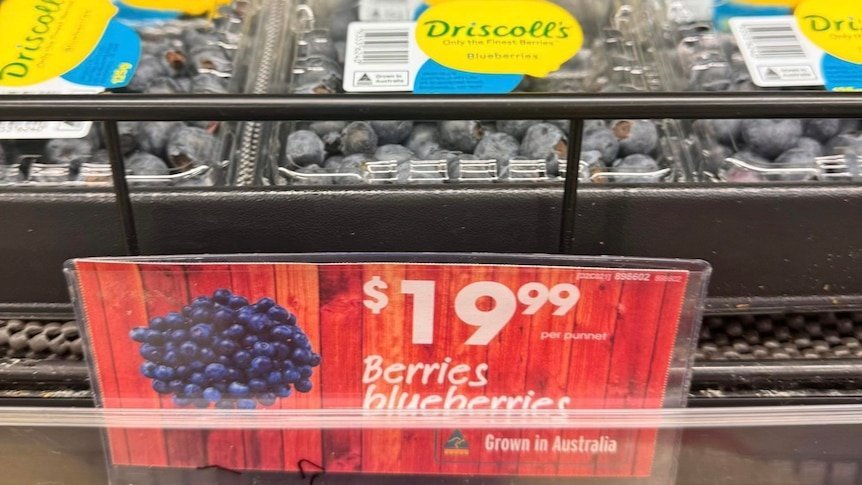Aussie Berry Scare: Health Watchdog’s Drastic Plan to Restrict Popular Fruit Fly Pesticide After Surging Demand Sparks Cancer Chemical Fears – And It Could See Prices SOAR
- Australia’s national chemical watchdog has unveiled a shock proposal to restrict a key pesticide used on popular berries like blueberries and raspberries.
- The stunning move comes after it was revealed Aussies’ berry consumption has more than DOUBLED in less than a decade, raising fears about exposure levels.
- The chemical in question, dimethoate, is already banned in the European Union and has been chillingly classified as a ‘possible human carcinogen’ in the United States.
- Furious farmers have hit back, warning the effective ban will make their fruit ‘unusable’ and could cause the price of berries to skyrocket for shoppers.
Australia’s love affair with berries could soon come at a much higher cost, as the national farm chemical watchdog moves to clamp down on a popular pesticide used to protect the fruit from the devastating Queensland fruit fly.
The Australian Pesticides and Veterinary Medicines Authority (APVMA) has put the nation’s $1.3 billion berry industry on notice, proposing tough new restrictions on the use of dimethoate after a “surging appetite” for the fruit among shoppers.
In a bombshell revelation, the authority confirmed that consumption of blueberries, blackberries, and raspberries has more than doubled since the chemical’s safety levels were last reviewed in 2017, forcing a dramatic rethink of the risks.

The regulator’s executive director, Dr Sheila Logan, insisted that berries are still safe to eat but admitted the massive increase in consumption means the existing “margin of safety” for the pesticide needs to be reconsidered.
Under the dramatic proposal, the time farmers must wait between spraying and picking the fruit would be extended to a crippling 14 days.
But the move has sparked outrage among growers, who say it would be a death sentence for their crops. Berries Australia chair Dr Anthony Poiner warned the change would effectively ban the chemical because the fruit would become overripe and worthless.
‘Berries are picked every two to seven days, so if you spray one day and have to wait 14 days, all the berries have gone overripe and are no longer usable,’ Dr Poiner said.
He slammed the proposal, arguing that dimethoate is the ‘most efficacious’ weapon against the destructive fruit fly, a pest that costs growers at least $300 million a year, and that alternatives are both more costly and less effective.
The controversy is deepened by the chemical’s international reputation. Dimethoate was completely banned by the European Union in 2019 and has been classified by the US Environmental Protection Agency as a “possible human carcinogen”.
Despite the alarming classifications, Dr Logan attempted to calm consumer fears. ‘I certainly wouldn’t suggest that anyone needs to avoid eating berries,’ she said, explaining the proposal was a pre-emptive measure to maintain safety margins.
Food safety experts have advised consumers to practice safe food handling at home, including washing produce, and to eat a wide variety of different fruits and vegetables to mitigate risks from any single source. Submissions on the proposed suspension are open until September 2, after which the regulator will make its final decision.

